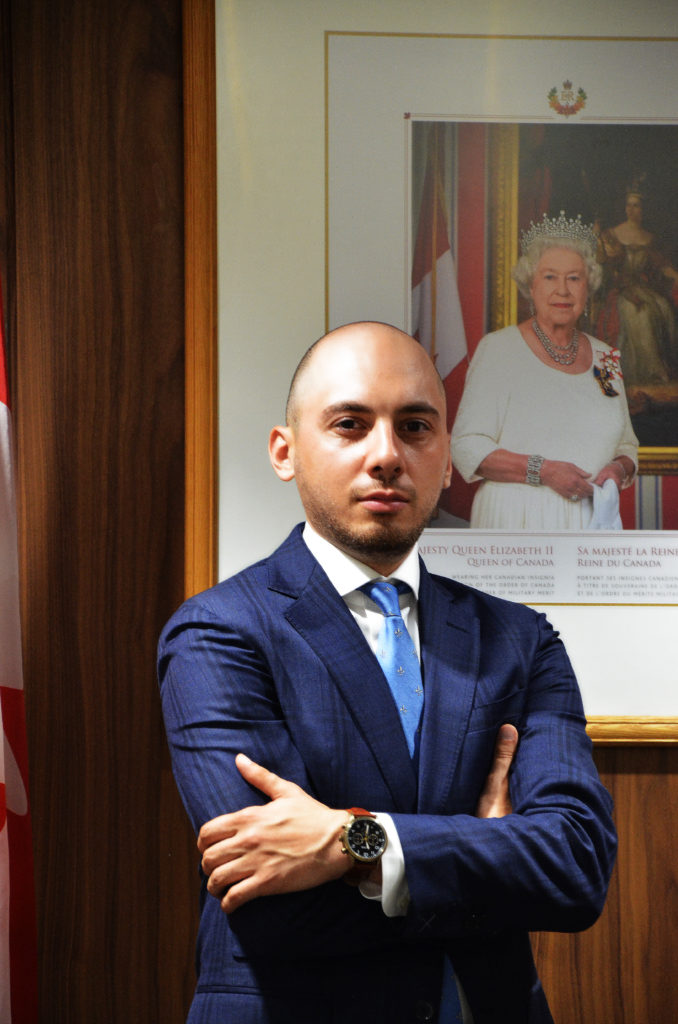Canadian Immigration Programs for EU Nationals
Find out how you could settle in Canada with your family as an immigrant from EU
What do I need to do to settle in Canada as an immigrant from EU?
Immigrating to Canada from the European Union (EU) involves several pathways, each with specific requirements based on your skills, experience, education, and family connections. Canada’s immigration system is designed to attract skilled workers, entrepreneurs, students, and individuals with family ties. Here's a very detailed explanation of the various immigration options available to EU citizens:
1. Express Entry System
The Express Entry system is the most popular and efficient route for skilled workers to immigrate to Canada. It is based on a points system and manages applications for three federal immigration programs:
- Federal Skilled Worker Program (FSW): For skilled workers with work experience in high-demand occupations.
- Federal Skilled Trades Program (FSTP): For individuals with experience in skilled trades.
- Canadian Experience Class (CEC): For individuals who have already worked in Canada on a temporary work permit.
Eligibility for Express Entry:
- Age: The maximum number of points for age is awarded to candidates between 20 and 29 years old. Candidates aged 30-44 still earn significant points.
- Work Experience: You must have at least one year of work experience in a National Occupational Classification (NOC) 0, A, or B occupation. You must provide evidence of this experience.
- Language Skills: Proficiency in English or French is mandatory. You must take a language test like IELTS (International English Language Testing System) for English or TEF (Test d’évaluation de français) for French.
- Education: You need at least a high school diploma, but higher education is usually required for more points. Foreign credentials need to be assessed through Educational Credential Assessment (ECA).
- Proof of Funds: You must demonstrate sufficient funds to support yourself and your family unless you already have a valid job offer in Canada.
- Medical and Police Clearance: You need to pass medical exams and provide police certificates to confirm that you are in good health and have no criminal record.
Steps for Express Entry:
-
Create an Express Entry Profile:
- Create an account on the IRCC (Immigration, Refugees, and Citizenship Canada) website and submit your details about education, work experience, language proficiency, and other information.
-
Comprehensive Ranking System (CRS):
- You will be assigned a CRS score based on factors like age, education, work experience, and language proficiency. Candidates with higher CRS scores are more likely to receive an Invitation to Apply (ITA)for permanent residency.
-
Wait for an Invitation:
- The Canadian government holds bi-weekly draws, inviting candidates with the highest CRS scores to apply for permanent residency. The draws are based on a minimum CRS cutoff score.
-
Submit Your Application:
- After receiving the ITA, you have 60 days to submit your complete application. You will need to provide documents such as medical exams, police clearance, proof of funds, and your Educational Credential Assessment (ECA) report.
-
Wait for the Decision:
- Once your application is submitted, it takes about 6-8 months for the Canadian government to process your permanent residency application.
2. Provincial Nominee Program (PNP)
Each province and territory in Canada operates its own Provincial Nominee Program (PNP) to attract workers who meet specific regional needs. If you have skills that are in demand in a specific province, or if you have a job offer in that province, you might be eligible for this program.
Eligibility for PNP:
- A job offer or work experience in a specific province.
- Some provinces may have specific criteria for certain occupations, so check each provincial program for details.
- You may be eligible for the Express Entry-linked PNP or a non-Express Entry PNP, which requires a separate application.
Steps for Provincial Nominee Program (PNP):
-
Choose the Province:
- Select the province you want to live in. Some provinces have streams for skilled workers, entrepreneurs, and international graduates. Popular provinces include Ontario, British Columbia, Alberta, and Quebec.
-
Apply for Nomination:
- Submit your application to the province. If the province accepts your application and nominates you, you will get additional points for your Express Entry profile.
-
Receive Provincial Nomination:
- If you receive a provincial nomination, you will have an increased chance of receiving an ITA (Invitation to Apply) for permanent residency.
-
Submit Application for Permanent Residency:
- With a provincial nomination, you can apply for permanent residency through Express Entry or the regular paper-based process, depending on the province.
3. Family Sponsorship
If you have a close family member (spouse, common-law partner, child, parent, or grandparent) who is a Canadian citizen or permanent resident, they may sponsor you to come to Canada. Family sponsorship is an excellent option for reuniting with family in Canada.
Eligibility for Family Sponsorship:
- The Sponsor: Must be a Canadian citizen or permanent resident and at least 18 years old.
- The Sponsored Person: Must be the spouse, common-law partner, dependent child, or parent/grandparent of the sponsor.
- Financial Support: The sponsor must demonstrate they can financially support the sponsored individual and any accompanying family members.
Steps for Family Sponsorship:
-
Check Eligibility of Sponsor:
- The sponsor must meet the eligibility criteria set by Canadian immigration, including being able to financially support you.
-
Submit Application for Sponsorship:
- The sponsor will submit the application on your behalf. You will need to provide supporting documents, including proof of relationship, identification, and your medical and police clearance documents.
-
Wait for Processing:
- Family sponsorship applications can take from 12 months to 2 years depending on the relationship and the type of sponsorship (spousal, parental, or child sponsorship).
4. Start-Up Visa Program
If you are an entrepreneur with an innovative business idea that has the potential to create jobs for Canadians, you may qualify for the Start-Up Visa Program.
Eligibility for Start-Up Visa:
- You need a letter of support from a designated Canadian organization (venture capital fund, angel investor group, or business incubator).
- You must have sufficient funds to support yourself and your family while you settle in Canada.
- You must meet the language requirements (English or French).
Steps for Start-Up Visa Program:
- Obtain Support from a Designated Organization:
- You must secure a letter of support from a Canadian venture capital fund, angel investor group, or business incubator.
- Submit Your Application:
- After receiving the letter of support, you can apply for permanent residency.
5. Study Permit and Post-Graduation Work Permit (PGWP)
If you are planning to study in Canada, you can apply for a study permit. After completing your studies, you may be eligible for a Post-Graduation Work Permit (PGWP), which allows you to work in Canada for up to 3 years. Gaining work experience in Canada can help you qualify for permanent residency through the Canadian Experience Class (CEC).
Eligibility for Study Permit:
- You must be accepted by a Designated Learning Institution (DLI) in Canada.
- You must demonstrate that you have sufficient funds to cover tuition, living expenses, and return transportation.
Steps for Study Permit:
- Get Accepted by a Canadian Institution:
- Apply and get accepted to a Canadian university or college.
- Apply for a Study Permit:
- Submit your study permit application online or at the Canadian Embassy in your home country.
- Post-Graduation Work Permit (PGWP):
- After completing your studies, you may apply for a PGWP, which allows you to gain Canadian work experience.
6. Work Permit
If you have a job offer from a Canadian employer, you can apply for a work permit. There are two main types of work permits:
- Employer-specific work permit: For a specific job with a particular employer.
- Open work permit: Allows you to work for any employer in Canada (usually given to spouses of skilled workers or international students).
Eligibility for Work Permit:
- A valid job offer from a Canadian employer.
- In some cases, the employer must obtain a Labour Market Impact Assessment (LMIA) to show that there are no qualified Canadians for the position.
Steps for Work Permit:
- Obtain a Job Offer:
- Secure a job offer from a Canadian employer.
- Apply for a Work Permit:
- Submit your work permit application through the IRCC website or at a Canadian consulate in the EU.
- Work and Gain Experience:
- Once you have a work permit, you can work in Canada and later apply for permanent residency.
Key Considerations:
- Language Proficiency: Canada requires proficiency in either English or French for most immigration programs.
- Education and Work Experience: Most programs require education or work experience that aligns with Canada's labor market.
- Proof of Funds: For many programs, you must show that you have enough money to support yourself (unless you have a job offer).
Conclusion:
Canada offers numerous pathways for EU citizens to immigrate, with the Express Entry system being the most popular for skilled workers. Other options, such as the Provincial Nominee Program, Family Sponsorship, Start-Up Visa, and Study Permits, also provide opportunities based on different circumstances.
Make sure to stay updated on the latest requirements through the IRCC website and consider consulting with an immigration consultant or lawyer to guide you through the process.
Here are some of the things that immigrants need to do to settle in Canada:
-
Apply for a visa: Immigrants must apply for and receive a visa that allows them to enter Canada. The type of visa needed depends on the individual's circumstances, such as their intended length of stay, reason for visiting, and country of origin.
-
Pass a medical exam: Immigrants are required to undergo a medical examination to ensure that they do not have any medical conditions that could pose a risk to public health.
-
Obtain a police certificate: Immigrants are required to provide a police certificate from their country of origin and any other country they have lived in for more than six months to show that they do not have a criminal record.
-
Find a place to live: Immigrants must find a place to live, whether that is through renting or buying a home or apartment.
-
Get a job: Immigrants must find a job to support themselves and their families, and to meet the requirements of their visa.
-
Learn English or French: Immigrants must be able to communicate effectively in English or French, which are the two official languages of Canada. There are language classes available to help immigrants improve their language skills.
-
Apply for a social insurance number: Immigrants must apply for a social insurance number, which is required to work and receive government benefits.
-
Open a bank account: Immigrants should open a bank account to manage their finances and receive their salary.
-
Enroll in healthcare: Immigrants must enroll in the public healthcare system to receive medical services and treatments.
-
Connect with the community: Immigrants should try to connect with the local community, whether that is through volunteering, joining a club or organization, or attending cultural events.
These are just some of the many things that immigrants need to do to settle in Canada. Immigration requirements and procedures can vary depending on the individual's circumstances, so it is important to seek professional advice and guidance.
What are things immigrants have to do to settle in Toronto?
Here are some things immigrants need to do to settle in Toronto:
-
Obtain legal status: Immigrants must have legal status in Canada to settle in Toronto. This can be achieved by applying for and receiving a visa, or by being granted refugee status.
-
Find a place to live: Immigrants must find a place to live in Toronto. This can include renting or buying a home or apartment, or living in temporary accommodation while searching for permanent housing.
-
Get a job: Immigrants should try to find a job in Toronto to support themselves and their families. There are many resources available to help immigrants with job searching, including job fairs, employment centers, and online job boards.
-
Learn English: English is the most commonly spoken language in Toronto, so immigrants should try to learn English to communicate effectively with others. There are many language classes available to help immigrants improve their language skills.
-
Obtain a driver's license: If immigrants plan to drive in Toronto, they will need to obtain a driver's license. The process for obtaining a driver's license can vary depending on the individual's country of origin.
-
Enroll in healthcare: Immigrants must enroll in the public healthcare system in Ontario to receive medical services and treatments. This can be done through the Ontario Health Insurance Plan (OHIP).
-
Connect with the community: Immigrants should try to connect with the local community in Toronto, whether that is through volunteering, joining a club or organization, or attending cultural events. This can help immigrants feel more at home in their new city.
-
Understand the cost of living: The cost of living in Toronto can be high, so immigrants should be prepared for this and budget accordingly.
These are just some of the things that immigrants need to do to settle in Toronto. It is important to seek professional advice and guidance to ensure a smooth transition to life in Canada.
Start your Process Today by Completing the Online Assessment Form.







